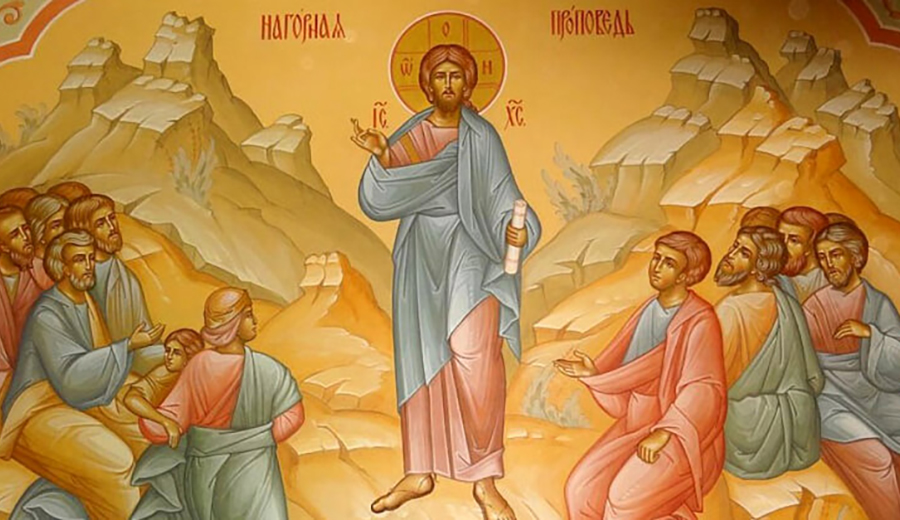Last week, we discussed what it means to possess poverty of spirit. In this next installment of our Beatitude series, we focus on the second blessing given by our Lord: “Blessed are those who mourn, for they shall be comforted” (Matt. 5:4). What kind of mourning is our Lord referring to here? And how can we foster this type of blessed mourning in our hearts?
Be sure to check back next week for our post on the third beatitude!
4 minutes
What does it mean to mourn?
Mourning means far more than shedding tears in disappointment over something not going our way. Such grief is worldly in nature, rooted in ambition, aspiration for power or gain. That kind of sadness can all too easily become despondency and despair, which leads to death (2 Cor. 7:10). The perfect example is that of Judas Iscariot, the betrayer of Christ.
Godly sorrow, on the other hand, liberates our souls from all earthly loves and affections. It leads us to contrition, repentance, and salvation. When we mourn in the way our Lord mentions, our tears are permeated with love for God and for our brothers and sisters. We shed tears not only for our own sins, but for the sins of others. We see this type of godly mourning when Moses sees the golden calf the Israelites have made to worship in place of God. Again, we see such tears shed by the Prophet Jeremiah over the ruins of Jerusalem. And such were the tears of the Savior Himself when He foresaw the destruction of Jerusalem, and of Peter after his denial of the Lord.
Does mourning require actual tears?
Godly sorrow and mourning is not always accompanied by physical tears. We can express mourning through sighs, constriction of the heart, deep silence, withdrawal, and inner concentration. However, when we do shed tears in godly mourning, St. Ephraim tells us our tears are like precious pearls. For by God’s gift of these tears, our soul is enlightened, washed and purified, cleansed of all filth and passion.
Tribulations and misfortunes in our lives can produce these godly tears in us, if we have acquired poverty of spirit. Deaths of loved ones, loss of employment, a terminal diagnosis. Whatever it may be. All the more can these tears lead to blessedness if we shed them over the suffering of someone else, if we accompany them with Christian love and mercy.
These tears are especially saving when they are constant. As St. John of the Ladder teaches us, if we truly desire salvation, a day in which we do not weep for our sins is a waste. Regardless of any good deeds we may have accomplished.
Blessed mourning comes naturally from poverty of spirit
The Beatitudes are somewhat like a ladder; in order to ascend to the second rung, we must firmly have our feet established on the rung below it. If we are poor in spirit, we can see our own sinfulness and the sinfulness of others. And it will wring from us an involuntary cry of profound sorrow and grief from the depths of our hearts.
The poor in spirit know how foolish and sad it is to be caught by sin, to be victimized by falsehood and evil, to be wedded to destruction and death. Viewing the realities of this world without God, the world captivated by its own vain imaginations, the world thinking itself rich and prosperous and needing nothing but in fact “wretched, pitiable, poor, blind and naked” (Rev 3.17), the spiritually poor man can only mourn. Knowing what could be from God, and what is actually with God, he will mourn and weep like the prophets over sinful Israel, like Jesus over the corpse of Lazarus and the city of Jerusalem (Jn 11.35, Mt 23.37), like Jesus Himself in the garden, confronted by His own cup of suffering which was so senseless and cruel.
But we need not despair, for our Lord seeks to offer comfort and hope to those who feel this sorrow and mourn because of it.
For they shall be comforted
Blessed mourning for sin is essential to our spiritual growth and attainment of salvation. But in the victory of Christ, it is not morbid or joyless. On the contrary, it is filled with hope, with gladness and with light.
As it is, I rejoice, not because you were grieved, but because you were grieved into repenting; for you felt a godly grief, so that you suffered no loss through us. For godly grief produces a repentance that leads to salvation and brings no regret, but worldly grief produces death. For see what earnestness this godly grief has produced in you . . .
2 Corinthians 7:9-11
In his writings, Saint John Climacus (7th c.) follows this teaching of Saint Paul. It is the classical teaching of the Christian spiritual tradition. The end of blessed mourning is not despondency or remorse, it is repentance and salvation. It is the “mourning which causes joy.”
Those of us who can cultivate this mourning through poverty of spirit will receive comfort from the Lord. We will receive forgiveness of sins, internal peace, and eternal joy and blessedness. For God’s mercy is infinite and He will wipe away every tear from our eyes (Rev. 7:17).

